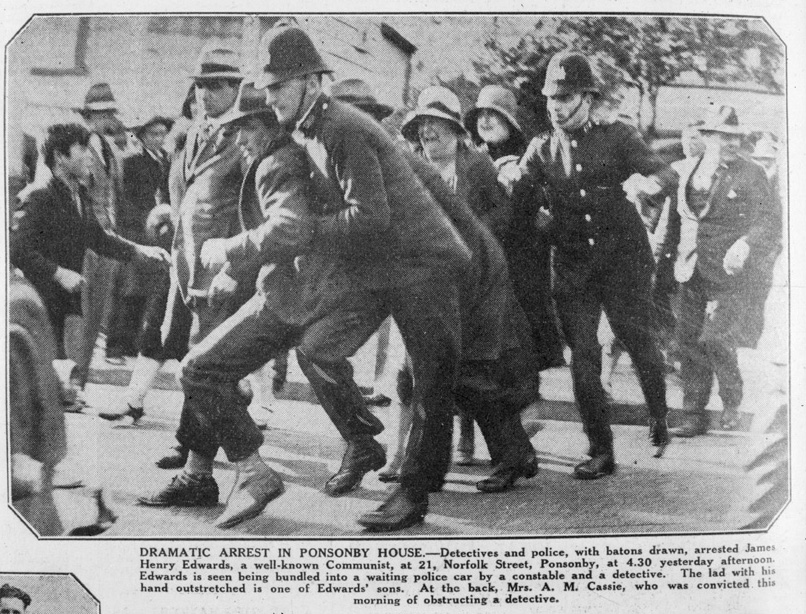At a time when the National Party have overseen cuts to student allowance eligibility and continued underfunding of education, there’s one educational provider that they’re happy to put millions into: Teach First NZ.
But their plans for Teach First NZ have recently hit a snag. The Employment Relations Authority ruled that all this time employing Teach First teachers has been illegal. This is because all teaching vacancies must be advertised by law. Teach First allows trainee teachers to be bonded to a low-decile school for two years, without the position being advertised.
You can see why Teach First can be an attractive proposition for prospective teachers. Instead of getting indebted for unpaid professional training at university, you get paid to train as a teacher. There’s also the lofty claims that the programme claims: addressing pressing social issues of inequality through education. The two-year program places trainees in “hard-to-staff” schools in South Auckland, Whangarei or Northland. It recruits “top graduates and career-changing professionals” to become “highly effective teachers and insprational leaders” for the most disadvantaged, predominantly Māori and Pasifika communites.
The idea that barely-trained trainees with little or no experience are best placed to teach those most disadvantaged beggars belief. Steve McCabe, a teacher at a decile 2 school in South Auckland, points out the worrying message this scheme sends to students: “central Auckland’s grammar schools are entitled to skilled, trained and dedicated professionals, [but] lesser economic status means they should be grateful for whomever their schools can get to stand up in front of a class”.
This is also a fundamentally anti-union measure. If the scheme spreads it will create two-tier staff rooms as well, and is part of a long-term push to de-professionalise teaching and take away from the provisions protected in the PPTA-won collective agreement.
Behind Teach First’s lofty social ambitions is also the aim to create a corporate recruitment program for graduates. This phenomenon is most obvious in the UK, where the scheme originates. Their website lists some of the biggest investment banks and professional services firms in the world as sponsors. Corporations like Citigroup, RBS, Credit Suisse, HSBC, Deloitte, Proctor & Gamble, and PricewaterhouseCoopers have all signed up. Their own website couldn’t make the corporate connection clearer. As their name suggests recruits teach first and then move on to becoming future leaders, not teachers: “Many of our participants will feel they have discovered their vocation … Others will move into business or not-for-profit fields, taking with them the valuable and empowering experience of working in a school serving a lower decile community.”
In some ways the Teach First NZ CEO Shaun Sutton is their model graduate. He was a high-achieving graduate who became attracted to teaching after hearing of Teach First. He gave up his business analyst job to work with ‘low-achieving’ students in London for two years. After his time was up, he went on to become the co-founder and CEO of Teach First NZ. He was 26 years old at the time. Hardly an experienced educationalist. In fact, most of the Teach First CEOs, starting from the founder Brett Wigdorz down, are from the private sector.
Working-class students in underfunded schools do not need a teacher who gets parachuted in to their school for two years. Students in South Auckland deserve better than trainees with six weeks training. They deserve teachers who are fully committed to their education and the profession.
There’s a reason why the likes of Education minister Hekia Parata and ACT’s David Seymour are so keen to see Teach First succeed. It fits with their ideology of neoliberalism. It’s a neoliberal answer to disadvantage. They ignore the structural inequality of this system that benefits the rich, the system that perpetuates inequality in the first place. They’re comfortable putting through policy change that attack the rights of beneficiaries or students, and that hurts the very people Teach First claims to help. They’re quite happy to ignore the ways in which teachers are overworked and underappreciated, and how schools continue to be under-funded.
The issue of educational inequality will never be solved in a society that is grossly unequal. Teach First is trying to address the problem in a way that’s agreeable to the National government here in New Zealand, and banks and consultancy firms in the UK: the very people responsible for perpetuating inequality. To quote teacher Steve McCabe again, Teach First will fail in its aims because it “does nothing to address the root problem, which is why these schools are harder to staff”.
The Post Primary Teachers’ Association’s literature review found that there was “insufficient evidence” to suggest that Teach First delivers better teachers. It’s good that the PPTA have taken Teach First to the Employment Relations Authority, and it is Teach First and the government who have let down their trainee teachers.
Strong opposition from the union is all the more important when Labour Party MP Kelvin Davis has come out in support of charter schools, and has spoken at the recent Teach First conference.
Teach First devalues the teaching profession and reinforces the myth that ‘anyone can teach’. Its lofty goals of ending educational inequity ring hollow when you see the likes of Hekia Parata lining up to back the scheme. It’s also pedagogically unsound – students who have been disadvantaged and marginalised will not be advantaged with trainee teachers who have little or no experience in a classroom. Most worrying, along with Charter Schools, this is part and parcel of National and ACT’s plan of privatising public education by stealth.









